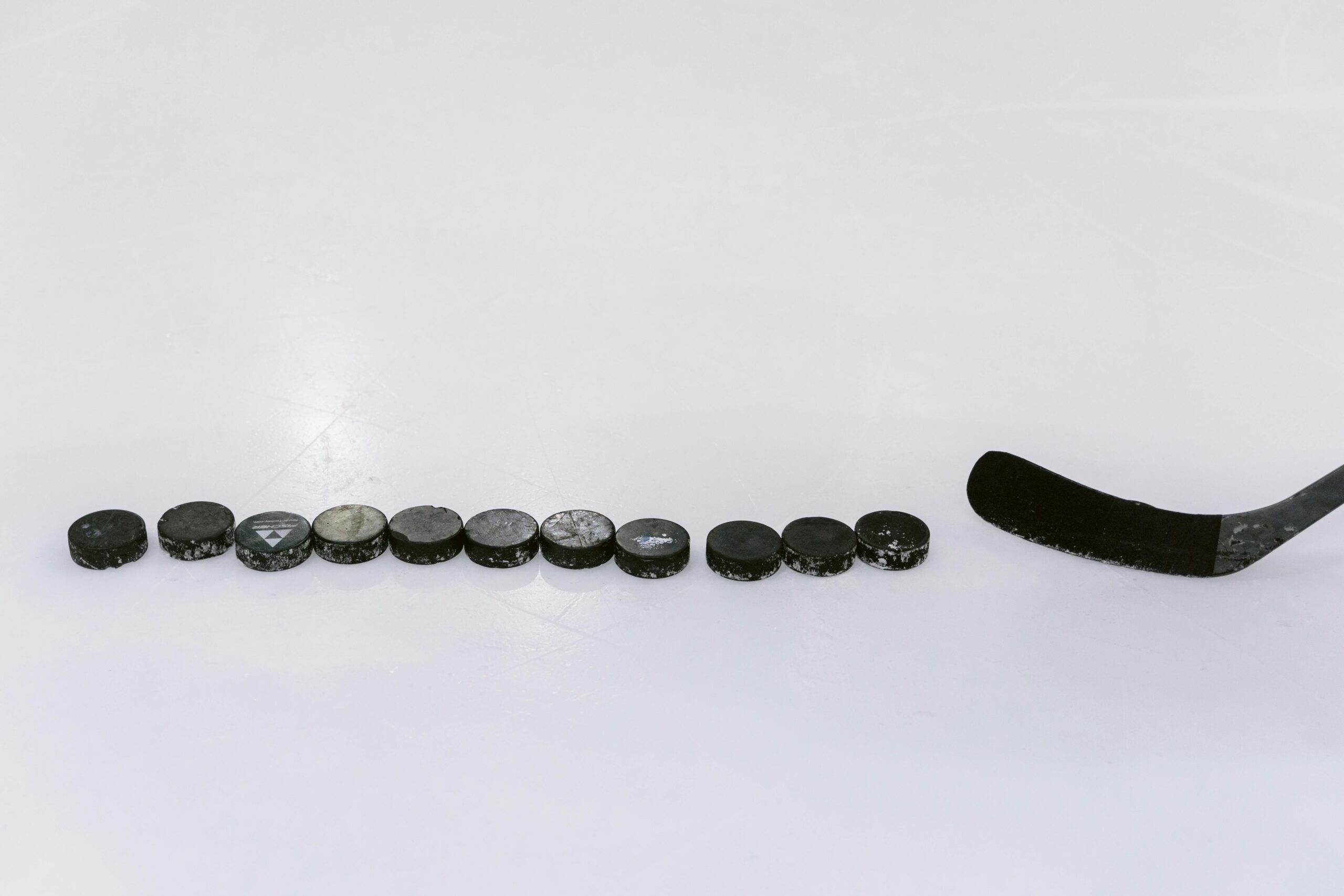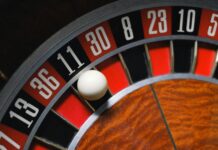NHL sports betting on power plays — does it really influence wins, or is it just another overhyped stat we blindly trust? I mean, you’d think everyone’s obsessed with power plays when placing bets, right? But what if we’ve been wrong all along about how much these moments actually matter in the grand scheme of NHL betting? NHL sports betting on power plays is everywhere in the conversation, yet no one really stops to question if those extra man advantages truly shift the odds or just give us false hope. Not gonna lie, this surprised me too when I first dug into it.
Maybe it’s just me, but the whole idea of betting on power plays feels a bit like chasing shadows. Sure, those chances can turn a game around, but does that really translate to consistent wins for bettors? Or is it just another one of those trending sports betting topics that sound smarter than they actually are? Why is no one talking about the flip side—like how teams defend during power plays, or how the pressure sometimes backfires? If you’re into NHL betting strategies and wondering whether power plays should influence your bets, this might just shake up what you thought you knew.
So, what’s the deal with NHL sports betting on power plays? Is it a game-changer or just a flashy stat that looks good on paper? You’d think this would be obvious, right? But the more I looked, the murkier it got. Stick around if you want to find out if betting on power plays really matters or if it’s just another myth in the sea of sports gambling folklore.
How Do Power Plays Impact NHL Game Outcomes? Unveiling the Truth Behind Winning Odds
How Do Power Plays Impact NHL Game Outcomes? Unveiling the Truth Behind Winning Odds, NHL Sports Betting On Power Plays: Does It Really Influence Wins?, NHL Sports Betting on Power Plays: Does It Matter?
Alright, so here’s the thing about NHL games and power plays — everyone talks about them like they’re the be-all and end-all of hockey strategy, right? Like, “Oh, a team’s got a power play, they’re basically guaranteed a goal!” Yeah, not quite. Not to be a party pooper, but power plays definitely shake things up, but how much they actually shift the outcome of a game? Well, that’s a bit murkier than you might think. Seriously, it feels like the whole hockey world is obsessed with power plays (and penalties, for that matter), especially when it comes to sports betting. But does betting on power plays actually move the needle? Let’s dig in before I ramble off somewhere else…
Why Power Plays Seem So Important (But Maybe Aren’t?)
So, for those who don’t follow hockey obsessively (and honestly, who does?), a power play happens when one team gets a player sent off for a penalty, leaving the other team with a one-man advantage on the ice. Sounds like a golden ticket, right? More players = more chances to score = more wins. Simple maths, or so they say. But it’s kinda more complicated.
Historically, teams on power plays score about 20% of the time. Yep, that’s roughly 1 goal every 5 power plays. So, while it’s definitely an advantage, it’s not a guarantee. Plus, the effectiveness varies a lot depending on:
- The team’s power play proficiency (some squads are just better at capitalising)
- The penalty kill skills of the opposing team (some teams are absolute bastards at defending)
- The game situation (early game? Late game? Score differential?)
- Goalie performance (because sometimes goalies just say “nope”)
If you look at NHL stats, the league average power play success rate tends to hover between 18-22%. Meaning, in eight or nine out of ten power plays, the team doesn’t score. So yeah, not exactly a slam dunk.
NHL Sports Betting On Power Plays: Does It Really Influence Wins?
Okay, now for the juicy bit — betting. Everyone loves a cheeky flutter on NHL games, and naturally, power plays have become a hot topic for bettors. The big question? Does betting on power plays actually improve your chances of winning bets? Or is it just another myth perpetuated by armchair analysts and bandwagon fans?
A lot of betting markets do offer props relating to power plays — like “Will a team score on the power play?” or “Total power play goals in the game.” But from a pure odds perspective, these can be tricky. Why? Because the success of power plays is influenced by so many unpredictable factors — player form, referee strictness, even luck (ugh, don’t get me started on luck).
Some sportsbooks adjust odds based on team power play efficiency stats, which makes sense. But it’s not foolproof. For example:
- A team with a 25% power play conversion doesn’t necessarily score on every power play.
- Opponents with strong penalty kills might neutralise that advantage.
- Momentum swings — a team might suddenly tighten up defensively or lose focus.
So, betting on power plays can be a bit of a gamble in itself (duh). It’s not like you can just pick the team with the better power play stats and expect a win every time. If only.
Sorry, had to grab a coffee — anyway…
The Stats Don’t Lie (Or Do They?)
If you’re the type who loves cold, hard numbers, here’s a quick look at how power plays correlate with winning percentages in the NHL:
| Power Play Goals Scored | Approximate Win Rate |
| 0 | Around 35-40% |
| 1 | Around 55-60% |
| 2+ | Upwards of 70% |
So, yeah, scoring on the power play definitely boosts your odds of winning. But (and it’s a big but), it’s not the only factor. Teams that score two or more power play goals almost always have a good chance of winning — but that’s usually because they’re dominating the game in general.
Also, teams that don’t score on power plays can still win if they’re strong at even strength. Hockey’s a funny game like that.
NHL Sports Betting on Power Plays: Does It Matter?
If you ask me, betting on power plays can be fun and add a bit of spice to watching the game, but it’s hardly a foolproof strategy for consistent wins. It’s one piece of the
Top 5 Statistics That Reveal the Real Effect of Power Plays on NHL Sports Betting
Alright, so power plays in the NHL — you’ve heard about them, right? Those moments when one team gets a player advantage because the other team did something dumb, like a high stick or whatever. Now, if you’re into NHL sports betting, you might be wondering: do these power plays actually sway the game enough to matter when you’re putting your cash on the line? Or is it just some fancy stats nerd thing that doesn’t really move the needle? Well, I’ve dug into the top 5 statistics that try to lay bare the “real effect” of power plays on NHL betting outcomes. Spoiler alert: it’s not as clear-cut as you’d think. But hey, maybe it’s just me who’s skeptical.
NHL Sports Betting On Power Plays: The Basics (Because You Need It)
Before we dive into the numbers, let’s get this straight: a power play happens when a team has a numerical advantage due to the other team getting penalised. Sounds simple enough. It’s like when your mate has one less player in footie ’cause he got a red card, except on ice with more hitting and less grass.
In NHL sports betting, some punters love to bet on teams during power plays, thinking that having more men on the ice obviously means higher chances of scoring, which should translate to wins, right? Well, yes and no.
What’s confusing is that not all power plays are created equal. Sometimes teams waste the opportunity, sometimes they’re lethal, and sometimes, the penalty kill (that’s the squad defending with fewer players) pulls off a miracle. So how does this all shake out in betting terms?
Top 5 Stats That Might Actually Matter (Or Not)
Power Play Conversion Rate
This is the percentage of power plays that end in goals. League average hovers around 20%. So, one in five times, teams score during a power play. Sounds low? Yeah, kinda. You’d think having an extra man would guarantee goals more often but nope. This stat alone tells you that power plays aren’t a sure-fire thing.Winning Percentage While on Power Play
Teams that score on power play tend to win more often — makes sense. But here’s the kicker: teams with high power play percentages don’t always have a better overall win-loss record. Weird, right? So, a team might be brilliant in power plays but rubbish otherwise.Penalty Kill Success Rate
The flip side of power plays, penalty kills, are about stopping goals while short-handed. Some teams are absolute legends at this. Boston Bruins and New York Islanders have historically strong penalty kills — which can completely neutralise power play advantages. Bet on that, and you might be onto something if the opponent is rubbish at power plays.Time Spent on Power Play per Game
You’d think more time on power plays means more goals, ergo more wins, right? Not quite. Teams that draw more penalties don’t always translate that into more goals or wins. Sometimes they just waste time, and the other team’s penalty kill holds firm. So betting just because a team is on power play longer might be a mug’s game.Impact of Power Play Goals on Game Outcome
Here’s a fun one — goals scored during power plays don’t always decide the game. Sometimes the equaliser or the winning goal comes at even strength. So power play goals are important, sure, but they’re not the be-all and end-all. Betting solely on power play success might miss the bigger picture.
NHL Sports Betting on Power Plays: Does It Really Influence Wins?
Honestly, it’s tempting to say “yes, duh.” More players = more goals = more wins. But the NHL is a messy sport, with a lot of variables. You’ve got goalie performances, line changes, momentum swings, and all that jazz. Power plays are a piece of the puzzle, but not the whole bloody puzzle.
Statistically, teams that are better at power plays do have a slightly higher chance of winning games. But it’s far from a guarantee. In fact, some of the best teams in the league win despite mediocre power play stats because their even-strength play and defence are solid as a rock.
So, if you’re betting just on power plays, you might be missing out on the bigger trends. Like, who’s got the hot goalie? Who’s on a winning streak? Who’s injured? You get the drift.
NHL Sports Betting on Power Plays: Does It Matter?
I mean, seriously, who even came up with this obsession with power plays in betting? Maybe it’s because it’s easy to spot on the stats sheet. But in reality, power plays are like this weird little subplot in the drama of a hockey game. Sometimes they steal the show, other times they
Can Power Play Performance Predict NHL Match Winners? Expert Insights and Analysis
Can Power Play Performance Predict NHL Match Winners? Expert Insights and Analysis
Alright, so here we are, diving headfirst into the murky waters of NHL stats, betting, and whether power plays actually mean jack when it comes to figuring out who’s gonna win a hockey game. Seriously, it sounds straightforward, right? Power plays give a team a man advantage, so logically, if you’re better at them, you should win more games. But… is it really that simple? Maybe not. Maybe it’s just me, but I’ve always been a bit sceptical about putting too much stock in any single stat—especially something as situational as power plays.
Why Power Plays Even Matter (Or Do They?)
So, for the uninitiated, a power play happens when the opposing team racks up a penalty and one team gets to play with more players on the ice for a short period. This usually means more chances to score because you’ve got that extra man controlling the puck. Teams with strong power play units often boast higher scoring rates, which should translate into wins. But hockey is weird—sometimes it’s not the shiny stats that tell the whole story.
Here’s a quick rundown of what power plays involve:
- Man advantage: Usually 5-on-4 or even 5-on-3 situations.
- Duration: Penalties last two to five minutes, depending on severity.
- Scoring opportunities: Teams try set plays and puck control to capitalise.
- Penalty kill: The other side isn’t just standing still—they try to block shots, clear the puck, or force turnovers.
Historically, teams with better power play percentages tend to have more success during the regular season. For example, the 2018-19 Tampa Bay Lightning had a power play success rate of around 24.3%, and they ended up with one of the best records that year. Coincidence? Probably not. But does that mean if your team has a rubbish power play, you’re doomed? Eh, not necessarily.
NHL Sports Betting On Power Plays: Does It Really Influence Wins?
Now, here’s where it gets a bit more tangled. Sports betting—especially on the NHL—is a whole different beast. Punters love to find any edge, and stats like power play efficiency can look like a golden ticket. But I’ve seen so many people lose their shirts betting solely on power play stats. The thing is, a power play only happens when the other team screws up and takes a penalty. So if you’re betting on a team’s power play performance, you’re kind of banking on the opponent’s mistakes too. Bit of a gamble in itself, right?
Let me throw a few pointers here:
- Power play percentage varies: Teams can have hot streaks or slumps that skew stats.
- Penalty discipline matters: Some teams rarely take penalties, limiting power play chances.
- Game context: In tight games, refs might call differently, affecting power play opportunities.
- Other factors: Goalie performance, even strength play, and momentum are huge.
Basically, betting just on power play stats is like trying to predict the weather by looking at a single cloud. Might work sometimes, but often doesn’t.
NHL Sports Betting on Power Plays: Does It Matter?
Okay, so I get it—bookies and bettors wanna know if power plays should influence betting decisions. My take? Power play stats are one piece of a massive jigsaw puzzle. They matter, but you can’t bet the farm on them. Teams with strong power plays often have good coaching, solid special teams units, and overall discipline—all positive signs. But then, you get games where a team with a poor power play smashes it anyway because of strong defence or sheer grit.
Here’s a quick pros and cons list for using power play performance in betting:
Pros:
- Shows special teams strength, which can be crucial in close games.
- Can hint at coaching quality and player skill in set plays.
- Helps spot trends, e.g., a team improving its power play over the season.
Cons:
- Doesn’t account for penalty frequency or game flow.
- Overemphasises one aspect of a multidimensional game.
- Power play success rates can be inflated by a few lucky goals.
Honestly, if you’re seriously thinking about betting on NHL games, you’d be better off combining power play stats with other metrics like faceoff win percentage, goalie save percentage, and even recent form. And even then, there’s no magic formula—hockey’s unpredictable, and that’s part of the charm.
A Quick Table: Power Play Success vs. Team Wins (Sample Data)
| Team | Power Play % | Regular Season Wins | Playoff Result |
|---|---|---|---|
| Tampa Bay Lightning | 24.3% | 62 |
Why Power Plays Matter More Than You Think in NHL Betting Strategies
Why Power Plays Matter More Than You Think in NHL Betting Strategies
Alright, so you’re diving into NHL betting, and someone probably told you, “Hey, watch the power plays, mate, they’re crucial!” But seriously, why do power plays get so much hype? I mean, it’s just when one team has more players on the ice because the other’s in the sin bin, right? Not really sure why this matters, but apparently, it does — at least according to the betting gurus and stats nerds. So, let’s unpack this whole power play business and whether it really influences your chances of winning a bet or if it’s just another overhyped stat to make hockey geeks feel important.
Why This Still Matters
If you’re new to NHL or sports betting in general, a power play is when a team has a numerical advantage because their opponent is serving a penalty. Seems straightforward, but here’s the kicker: teams with good power play percentages tend to score more during these situations, which can swing games big time.
Historically, power plays have been game-changers. Back in the 80s and 90s, teams like the Edmonton Oilers, with Wayne Gretzky and company, absolutely crushed it on power plays. They scored a ton during penalties, which helped them dominate. So, if you’re betting and know a team has a wicked power play unit, you might think it’s a safe bet they’ll capitalise on those chances.
But, hang on — it’s not all sunshine and rainbows. Sometimes teams with great power plays just… don’t. Like, they might have a killer PP% on paper but then choke under pressure or face penalty-killing units that are just as good. So, your gut feeling and stats both have to work together, yeah?
NHL Sports Betting On Power Plays: Does It Really Influence Wins?
Okay, here’s where it gets a bit murky — because while power plays obviously influence games, does that translate to better bets? Well, the answer is: kind of. But, also not really?
Look, the stats do show that teams with strong power plays tend to win more games, especially close ones. Here’s a quick breakdown:
- Teams with power play success rates above 20% win more games.
- Penalty-killing units that can neutralise power plays are just as critical.
- Games with multiple penalties tend to be higher scoring.
So, if you’re betting on a team that’s got a 25% power play success and they’re up against a team that struggles to kill penalties, you could be onto something. But, (and this is a big but), hockey is unpredictable — injuries, goalie performance, momentum swings — all that jazz can throw a spanner in the works.
Oh, and speaking of which — sorry, had to grab a coffee — anyway, where was I? Right, power plays and betting.
NHL Sports Betting on Power Plays: Does It Matter?
Look, if you’re asking if you should base your entire bet on power plays alone — no, don’t be daft. But if you ignore them, you’re missing a piece of the puzzle. Here’s a quick list of why power plays matter in betting strategy:
- Momentum Shift: Teams on power plays often get a surge in confidence, which can carry into even-strength play.
- Scoring Chances: More players means more space, more shots, more goals.
- Game Flow: Penalties can disrupt a team’s rhythm; if a team is disciplined, they rarely give opponents power-play opportunities.
- Special Teams Stats: They’re often a good indicator of overall team strength.
Seriously, who even came up with this? I mean, special teams might be just one factor among many, but it’s a big one. If you ignore power plays, you’re basically betting blind on a hockey game.
A Quick Look: Power Play Success Rates of Top Teams (Latest Season)
| Team | Power Play % | Penalty Kill % | Wins | Losses |
|---|---|---|---|---|
| Tampa Bay Lightning | 26.5% | 82.0% | 45 | 25 |
| Boston Bruins | 22.3% | 84.5% | 50 | 22 |
| Toronto Maple Leafs | 21.8% | 79.2% | 43 | 29 |
| New York Rangers | 19.9% | 80.3% | 40 | 34 |
Look at those numbers. You can see the teams with better power play percentages tend to have better records. But it’s not a perfect correlation (see Rangers, bless ’em), so don’t go betting your house on it.
Exploring the Influence of NHL Power Plays: Does It Really Shift the Betting Landscape?
Exploring the Influence of NHL Power Plays: Does It Really Shift the Betting Landscape?
Alright, so here we are, diving into the murky waters of NHL power plays and their impact on sports betting. Honestly, I always wondered if all this fuss about power plays swaying game outcomes and, by extension, betting odds was just a bit overblown. I mean, yeah, a man advantage sounds like a big deal, but does it actually matter that much when you’re placing your hard-earned cash on a team? Spoiler alert: it’s complicated. But hey, let’s try to unpack this without losing our minds.
Why NHL Power Plays Are Hyped Up
First things first, what exactly is a power play? For the uninitiated, it’s basically when one team has a player in the penalty box, giving the other team a numbers advantage—usually 5-on-4—for a short window. It’s like being handed a free shot on goal, theoretically. Because hockey’s fast and chaotic, power plays can quickly turn the tide of a match.
Historically, teams with strong power play units tend to rack up more goals during these opportunities, which is why bettors and analysts obsess over them. Look at these quick stats:
- NHL average power play success rate hovers around 20%
- Top teams can convert at about 25-30%
- Some seasons, power plays have directly accounted for up to 15% of total goals scored
So, yeah, it sounds like a decent chunk, right? But here’s where it gets tricky.
NHL Sports Betting On Power Plays: Does It Really Influence Wins?
Okay, so here’s the million-dollar question: does having a killer power play actually mean a better chance of winning? You’d think so, but the numbers paint a less clear picture. Sometimes teams with awful power plays still manage to grind out wins, and others with sparkling special teams get tripped up by sheer bad luck or solid penalty kills.
To make it less dry, here’s a rough outline of what I’ve found from various NHL analyses and betting forums (yes, those can be useful if you sift through the nonsense):
- Power play efficiency correlates with more goals scored, obviously.
- Penalties drawn and taken matter just as much—if your team takes loads of penalties, you’re handing the other side chances.
- Game context is king—power plays in tight playoff games can be more impactful than in blowouts.
- Betting markets sometimes overvalue power play stats, leading to skewed odds.
And, oh, speaking of betting markets—this is where things get a bit murky. Sportsbooks do consider power play stats, but they’re just one piece of the puzzle. Goalie form, injuries, even travel schedules can throw a spanner in the works.
NHL Sports Betting on Power Plays: Does It Matter?
Honestly, maybe it’s just me, but betting heavily on power play metrics alone feels like rolling the dice with one eye closed. Sure, it’s tempting to latch onto those shiny percentages and think, “Right, power play leaders = winners.” But hockey’s a messy game. A team might dominate power plays but struggle at even strength or vice versa.
Here’s a quick pro-and-con list to help clear the fog:
Pros:
- Gives bettors a measurable stat to analyse
- Indicates special teams strength, which can be a game-changer
- Useful for in-game betting where power plays can swing momentum fast
Cons:
- Doesn’t account for penalty kill strength by opponents
- Can mislead if you ignore other important factors (goalies, injuries, etc.)
- Power play success rates fluctuate wildly from game to game
Side note: Sorry, had to grab a coffee — anyway…
Right back. Power plays still feel like one of those “yeah, they matter but don’t get too excited” things. Like, if you’re a bettor, don’t put all your eggs in the power play basket. Use it as a lens, not the whole picture. Also, weirdly enough, some teams purposely play more aggressively to draw penalties, which can skew data. So you might see a team with average power play success but loads of power play opportunities and think they’re great value. Not always true.
Some Practical Examples (Because Why Not?)
- The Tampa Bay Lightning have had some of the best power plays in recent years, often converting at 25%+. Their dominance on the man advantage has helped them notch key wins in playoffs.
- Conversely, the New York Rangers in certain seasons had middling power plays but relied heavily on solid defence and goalie Henrik Lundqvist to win games.
- And then you get teams like the Edmonton Oilers, whose power play might be inconsistent but have star players who can score even at even strength.
So if you’re into NHL
Conclusion
In conclusion, understanding the impact of power plays in NHL sports betting is essential for making informed wagers. As we have explored, power plays can significantly influence the momentum and scoring potential within a game, often tipping the scales in favour of the team with the man advantage. However, it is equally important to consider other variables such as team strategy, player discipline, and historical performance during penalties to gauge the true value of betting on power plays. While power plays do matter, they should not be viewed in isolation but rather as part of a broader analytical approach to NHL betting. For those looking to enhance their betting success, incorporating power play statistics alongside other critical factors can provide a competitive edge. Ultimately, a well-rounded strategy is key—so stay informed, analyse the data carefully, and bet responsibly to enjoy the excitement of NHL sports betting to its fullest.












